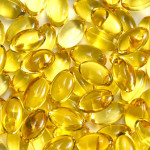Die Hard: Why Palm Oil Myths Persist
Any online search for a connection between palm oil and human health will bring up hundreds of websites claiming that palm oil is ‘bad for you’. The criticism does not get more elaborate than to say that palm oil contains fats; that fats lead to cardiovascular disease; and that you should therefore avoid palm oil. We will return to this issue shortly.
First, take a look at this gem. ( http://www.livestrong.com/article/198975-what-are-the-dangers-of-palm-oil/) It is symptomatic of much of the misleading and sloppy information that gets thrown on the Internet and which causes much damage.
The website livestrong.com in an article uploaded in May 2015 digs up a 17-year-old study by ‘three Nigerian biochemistry researchers’. Under the paragraph heading ‘Can cause toxicity’, it reads:
[The] … researchers extol some of the nutrients found in fresh palm oil, but point out that the oil in an oxidised state can threaten physiological and biochemical functions of the body. […] The dangers of oxidised palm oil include organotoxicity of the heart, kidney, liver and lungs, as well as reproductive toxicity, the researchers claim. Additionally, they note, oxidised palm oil can cause an increase in free fatty acids, phospholipids and cerebrosides. (emphasis added)
What exactly does it mean when physiological functions are ‘threatened’? Or perhaps it is the meaning of ‘cerebrosides’ that befuddles. The McGraw-Hill Dictionary of Scientific & Technical Terms states that cerebrosides are ‘any of a complex group of glycosides found in nerve tissue, consisting of a hexose, a nitrogenous base, and a fatty acid. Also known as galactolipid’.
And what about ‘organotoxicity’? A check with the Merriam-Webster and McMillan dictionaries indicates that this is not even a word. But it sounds bad, doesn´t it? Almost as threatening as ‘reproductive toxicity’, which perhaps translates to ‘consume palm oil and you cannot have babies’.
The truth
Let us return to sanity. What the quote above – and others on the ‘toxicity’ of palm oil – talk about is the issue of 3-MCPD-fatty acid esters, otherwise known as 3-monochloropropane-1,2-dio.
These esters caused a splash a few years ago when reports said that ‘high’ levels of 3-MCPD had been found in numerous processed foods, notably in soy sauce. Studies then linked the compound to health risks for kidneys and testicles, for example.
These reports were followed up internationally by health authorities that conducted their own research. Among them, the German Federal Institute for Risk Assessment (BfR) did a series of tests that came up with … well … nothing.
Surveying the comprehensive work of the BfR, the Lower Saxony State Office for Consumer Protection and Food Safety concluded: ‘Overall, the data available to date is insufficient to estimate the extent to which the consumer will be affected by eating food containing 3-MCPD fatty acid esters.’ (author´s translation)
Confirmation from science
Now, back to the issue of fats. Stern warnings not to consume palm oil can be found anywhere, although scientific evidence has refuted such claims for years.
In the world of nutrition, a certain rethinking is taking place. While it is acknowledged that over-eating and exaggerating the intake of fats – be it saturated or unsaturated, of animal or plant origin – can lead to health problems, the consensus is that fats per se are by no means bad for health. On the contrary, they are a necessary part of a healthy diet.
Confirmation of this was issued by the Italian Istituto Superiore di Santià (Superior Health Institute) in February this year. Italy’s Ministry of Health had asked the Institute for an opinion on the health consequences of consuming palm oil. The result must have surprised many, as demonstrated by an online article with a headline that sounded incredulous: ‘Superior Health Institute ‘absolves’ palm oil’.
The Institute said palm oil is as healthy or unhealthy as any other vegetable oil or fat. What matters is the lifestyle and eating habits of a person, as well as getting enough exercise and sleep. Palm oil does not kill, no matter how hard some try to claim that it does!
How to eat healthy
Why do myths about palm oil linger despite strong scientific evidence to the contrary? One reason is because the falsehoods are advanced by people with an agenda. Often, environmental groups, in their fervor to fight deforestation, enlist the nutritional debate to add weight to the sustainability arguments. The logic seems to be: ‘If you are not sure whether palm oil is bad for the environment, just remember it is bad for your health’.
Here is an example from onegreenplanet, a media outfit that, according to their website is ‘focused on compassionate and eco-conscious living’. It says: (http://www.onegreenplanet.org/vegan-food/is-palm-oil-good-for-your-health/) ‘With all of this talk about the ethics of palm oil, a person might wonder whether eating it is healthy in the first place.’
Let common sense provide the answer, as you consider another example. In many European countries, butter from cow’s milk is a staple food. Every morning, from Paris to Warsaw, millions pack a sandwich with butter.
Butter contains as much (or as little, depending on your point of view) saturated fats as palm oil. But where is the campaign against butter? Palm oil, though, is routinely singled out by those who claim to be looking after your health.
To avoid such insanity is not at all hard. Just eat like your grandma told you – have everything in moderation. And if she is not enough of an authority, remember the words of that old sage of European medical lore, Paracelsus: Sola dosis facit venenum. It is the dose that makes the poison!
MPOC Brussels










Leave a Reply